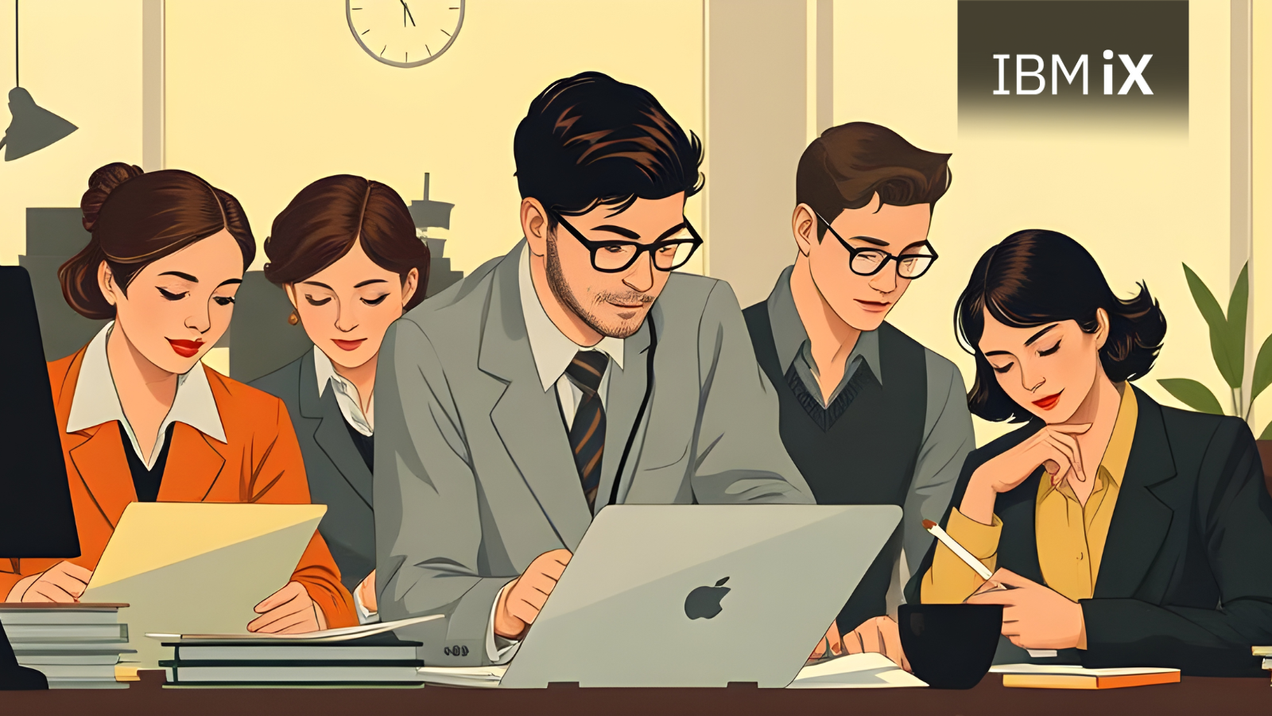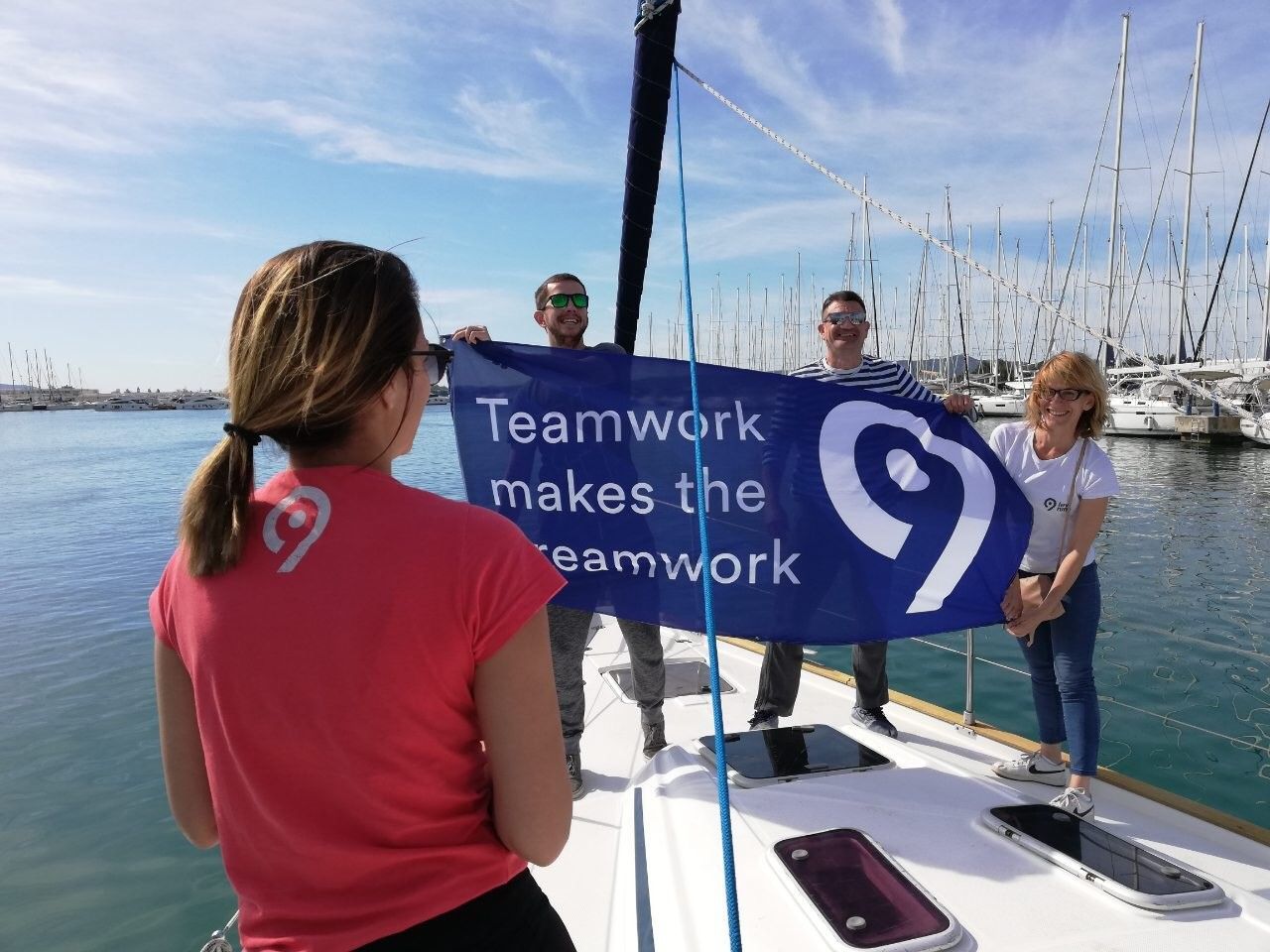
How will IT companies respond to expectations to "work from anywhere" even after the pandemic?
"Work from home" and "work from anywhere" are not new approaches when it comes to the IT industry, but the fact is that the preferred way of working was always from the office. Due to the pandemic, the entire industry has changed and it is believed that by 2027, more people will work remotely than from the office.
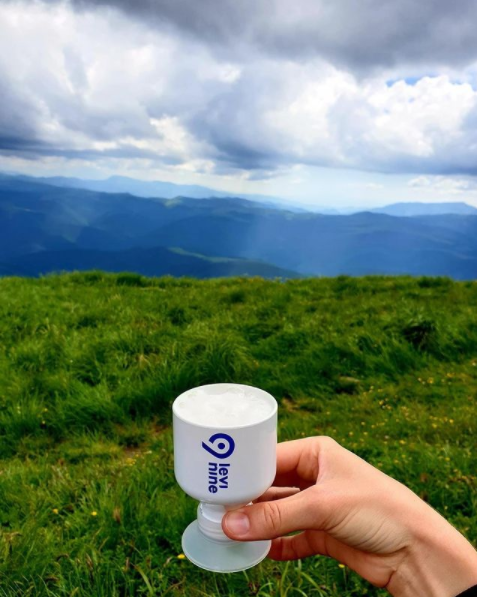
Research also shows that almost 60% of employees want to keep the principle of working from home after the pandemic, and if that turns out not to be the case, they would look for another job that will allow it. The "Work from anywhere" model is here to stay, and companies that do not adapt to the remote concept may find themselves on the sidelines in the battle for new talent.
How the domestic IT scene reacts to these changes, in the circumstances when the pandemic subsides and offices open their doors again for employees, we spoke with the software company Levi9 from Serbia, in which they reveal exclusively for the Joberty blog how the new hybrid model of work operates in their offices in Novi Sad, Belgrade, and Zrenjanin.
Flexibility - the future of business
The new approach to the organization of work at Levi9 was created by listening to the needs and wishes of their employees, who, as internal research showed, prefer a hybrid work model - little from home or any other destination and the rest from the office. Greater flexibility is reflected in the fact that each employee, every day in accordance with his obligations, and personal and family circumstances, will decide whether that day he will be more productive in the office or at home.
In the future, the hybrid work model at Levi9 will be based on 3 pillars of flexibility.
The first is a personal decision, explains Sonja Bunčić, talent manager in this company. The second, and at the same time the most important, is the team - each of the teams will decide for themselves what is the best balance for team spirit, cooperation, and productivity, that is, they will define which tasks, parts of the project and challenges are best solved when they are together. The third pillar of flexibility is the company, which will define the moments when cooperation is the best when it is face-to-face.
"Greater flexibility on an individual level will contribute to a better quality of life for our colleagues. I deliberately do not want to use the term work-life balance, because work is part of our life and as such is not a counterbalance to the rest of the day, but a part of it. They are intertwined, and it is up to each of us to find the best synergy so that at the end of the day the person is satisfied."
As a team, Levi9 is already well-established in the remote work mode, and the model of working exclusively from home during the pandemic has proven to be surprisingly good, not affecting either the productivity or the quality of the company's services.
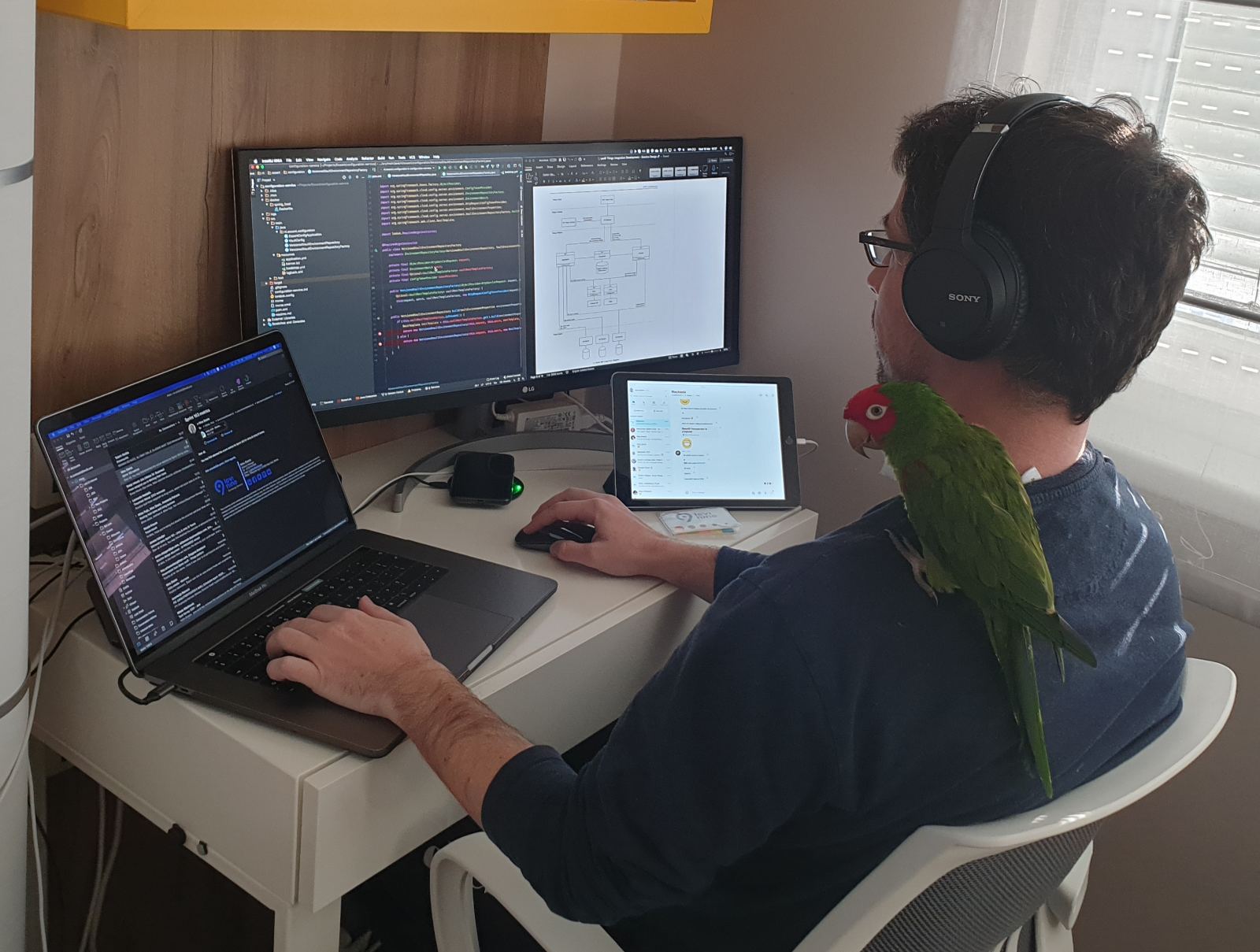
How are the employees doing in the remote environment?
Ivan Ković, Tech Lead in the Novi Sad office, initially had the hardest time getting used to the silence. For him, having the option to work from home is a great thing, but he feels that working from the office for team projects is incomparably more efficient.
"There are those little moments where you go out for a coffee with a colleague or turn to the colleague sitting next to you and exchange a few sentences about what you're doing. Those are the things I really miss now. Also, it is much more efficient to work in the office, first of all because we need more time to explain something properly. And finally, perhaps the most important thing is that this kind of work prevents us from communicating face-to-face to see how a person feels and what he really thinks."
His colleague in the Belgrade office, Nemanja Mitić, sees "work from anywhere" as a good concept because employees have more time for personal needs, to explore their hobbies, etc., without having to worry about whether they will be "physically" late for a meeting or properly dressed for the office.
"In the beginning, there was a small amount of fear as to how the conflicts would be solved, which until now required the team to be physically present in the office, but of course there are so many even free services on the Internet that helped us solve some things better than if we were all together. In the office."
For employees in Zrenjanin, going to the office has no alternative. Since this team has about 50 people, they see themselves as a big Levi9 family and use every opportunity to work from the office.
"We arrange our space with common ideas - we can use a beautiful terrace that has become a wonderful corner in which we can enjoy. For all this time, we missed socializing, common coffees with the usual chats and solving doubts about the projects. All of these are irreplaceable things" - says Dušanka Lečić, Senior Test Developer and Department Manager in the Zrenjanin office.
As the individual opportunities for each of the more than 600 employees at Levi9 are different, the company's approach in the new work organization will be individual, once again emphasizing talent manager Sonja Bunčić. For some, it means that the working day starts at 10 AM, for some, it means that they have more time to have lunch with their family, while some need the time to focus without distractions.
"So there is not one or more solutions, but as many as the number of employees we have."
Selection of new colleagues in remote work organization
Delivery manager Dragiša Đurić joined the Levi9 team right at the time of the pandemic and is one of the 200 employees who started or continued their career in the company, from the beginning of the pandemic until now. They met, hired, and onboarded them all online, so even though selection and recruitment looked different during the pandemic, they adapted the processes to the situation. Efficiency, as shown by the figures, is unchanged.
"I expected that it would be much more complicated to fit in, but it turned out to be the complete opposite - Dragiša points out. - I got my "buddy" with whom I went through all the details of the job and the company itself. Also, my manager and other people in the department were very open and approachable and one of my main impressions of Levi9 as a company from the beginning was that everyone is very accessible and open to any kind of assistance. It is enough to "call" someone via Teams and within a few minutes you have already scheduled a call. It seems to me that this kind of culture was nurtured even before the pandemic, so it represents a facilitating circumstance when introducing new people to the business."
Nevertheless, the employees are looking forward to the gradual return to the offices, and the opportunity to give new colleagues the opportunity to experience the common working atmosphere firsthand.
"Of course, it is also possible to do it online, but the impression is far better and more reliable when accompanied by the sensations that face-to-face contact brings" - says Sonja Bunčić, talent manager.
Social interaction and face-to-face communication with each other and with customers have always been a priority forLevi9. During the pandemic, there were frequent departmental meetings to see and make sure that everyone was doing well, even when there was no particular topic for the meeting.
Levi9 employees also have an internal portal where they can find the most important information, news, announcements, and stories from Levi9, as well as monthly video meetings within the Delivery centers, so that everyone can see each other at least once a month. The Agile (Scrum) approach to working on projects greatly facilitated working with clients, who are mostly foreign, so most of the meetings with them take place online anyway.
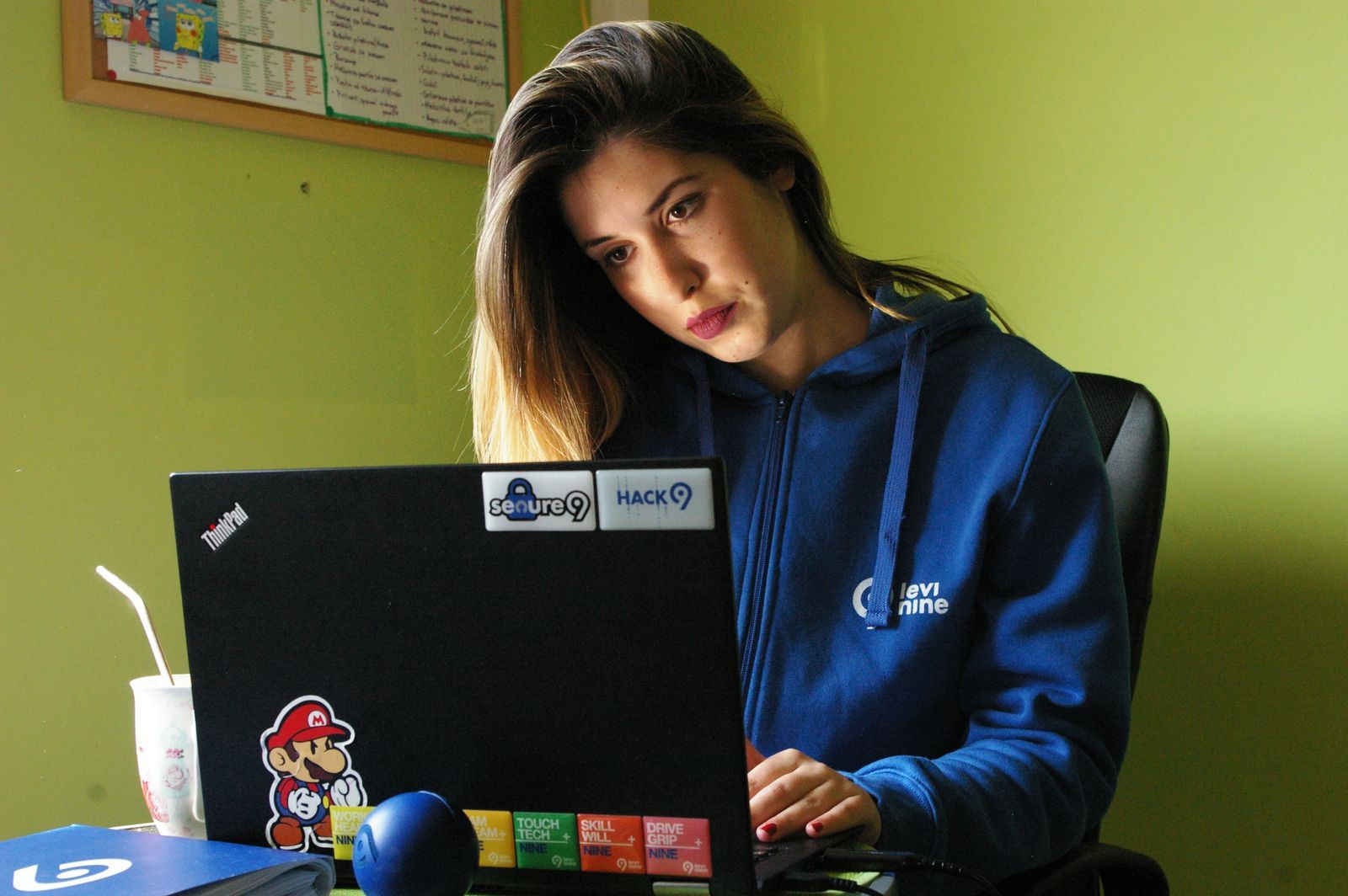
Spirit of the community
As the whole world is approaching the end of the pandemic, and the return to the office will not look like before, we were interested in what was revealed and how much the concept of remote work can be a threat to the development of new ideas and innovation on projects and in teams.
"Although inspiration for innovation can come in many ways and through different experiences, there is something about the spontaneous exchange of ideas and experiences as we make coffee, recount yesterday, react and make sense of the world around us with others. That invisible sense of the community is fertile ground for inspiration, mutual stimulation of ideas and collaboration."
It is for this reason that full-time work from home is not a preferred option for Levi9 and the way they want to develop their business.
They have full confidence in the future hybrid model of work, and even though they are aware that there will be challenges, they will continue to build the culture that they are known for in the "offices of the future".
"Freedom in decision-making and trust shown to employees will surely pay off in the long run. If I look at (and if we look at it like that), the two extremes exclusively working from home and exclusively working from offices, the middle is in my opinion the best for the individual, his well-being and quality of life, which will surely be reflected in the overall well-being."

